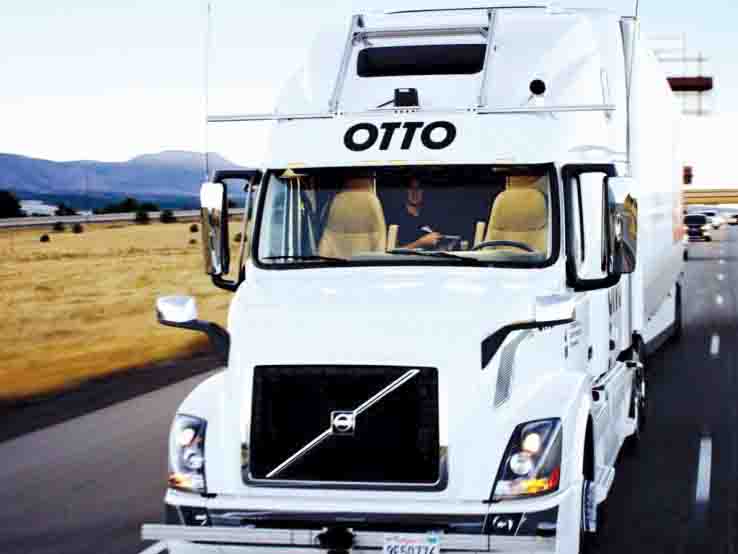Texas A&M Transportation Institute (TTI) has teamed up with the Texas Department of Transportation (TxDOT) to undertake a four-year project to test connected vehicle technology on a portion of I35 in the state.
Funded by a US Department of Transportation (USDOT) grant, the US$2 million project, called I-35 Connected Work Zone, will initially focus on improving freight movement along the construction corridor by providing long-haul trucks a steady stream of traveller information through on-board devices c
Texas A&M Transportation Institute (TTI) has teamed up with the 375 Texas Department of Transportation (TxDOT) to undertake a four-year project to test connected vehicle technology on a portion of I35 in the state.
Funded by a324 US Department of Transportation (USDOT) grant, the US$2 million project, called I-35 Connected Work Zone, will initially focus on improving freight movement along the construction corridor by providing long-haul trucks a steady stream of traveller information through on-board devices capable of receiving work zone infrastructure data. That information includes lane-closure locations, delay lengths and projected delays up to a week in advance.
“In this first phase of the Connected Work Zone project, the initial fleet of long-haul commercial trucks will be equipped with communication equipment and the technology needed to receive the existing I-35 traveller information and data we developed for the Waco District I-35 construction project,” says TTI research scientist Robert Brydia. Highway sensors gather real-time travel information on traffic conditions which will be transmitted to the trucks in a way that will not distract truck drivers.
Freight movement efficiency has long been hindered by a lack of reliable traveller information. The goal of the USDOT’s Freight Advanced Traveler Information System (FRATIS) program is to optimise freight operations and therefore the overall transportation system.
The current project is an enhancement to a Texas component of the FRATIS project currently under way among some smaller trucking firms in the Dallas-Fort Worth area. That effort involves using software to optimise processes for businesses that rely on short-haul freight movements. Minimising empty truck trips and the rerouting of trips to avoid congestion can help reduce operating costs, thereby reducing shipping costs and perhaps, eventually, providing lower prices for consumers as well.
Although the next phase of the project has not been defined, it could involve equipping passenger vehicles with the same type of communication equipment capable of receiving real time corridor information.
“Research and testing are vital steps forward as connected-vehicle technology moves from the cutting edge to the every day,” says TTI assistant agency director Christopher Poe. “This project is a natural next step in the long-term partnership of TTI and TxDOT working together to improve transportation for Texas and the nation.”
Funded by a
“In this first phase of the Connected Work Zone project, the initial fleet of long-haul commercial trucks will be equipped with communication equipment and the technology needed to receive the existing I-35 traveller information and data we developed for the Waco District I-35 construction project,” says TTI research scientist Robert Brydia. Highway sensors gather real-time travel information on traffic conditions which will be transmitted to the trucks in a way that will not distract truck drivers.
Freight movement efficiency has long been hindered by a lack of reliable traveller information. The goal of the USDOT’s Freight Advanced Traveler Information System (FRATIS) program is to optimise freight operations and therefore the overall transportation system.
The current project is an enhancement to a Texas component of the FRATIS project currently under way among some smaller trucking firms in the Dallas-Fort Worth area. That effort involves using software to optimise processes for businesses that rely on short-haul freight movements. Minimising empty truck trips and the rerouting of trips to avoid congestion can help reduce operating costs, thereby reducing shipping costs and perhaps, eventually, providing lower prices for consumers as well.
Although the next phase of the project has not been defined, it could involve equipping passenger vehicles with the same type of communication equipment capable of receiving real time corridor information.
“Research and testing are vital steps forward as connected-vehicle technology moves from the cutting edge to the every day,” says TTI assistant agency director Christopher Poe. “This project is a natural next step in the long-term partnership of TTI and TxDOT working together to improve transportation for Texas and the nation.”











